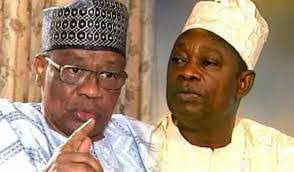Mohamed Garba
In a historic turn of events, former military president General Ibrahim Badamosi Babangida (IBB) has publicly apologized for annulling the June 12, 1993, presidential election, an action that has haunted Nigeria’s democratic journey for over three decades. The apology came during the launch of his autobiography, “A Journey in Service,” in Abuja on Thursday, February 20, 2025.
The June 12 election, widely regarded as Nigeria’s freest and fairest, was poised to usher in Chief Moshood Kashimawo Olawale (MKO) Abiola as president. However, its abrupt annulment by the Babangida-led military government plunged the nation into political turmoil.
In his address, Babangida expressed deep regret over the decision, stating, “Our nation’s march to democracy was interrupted, a fact that I deeply regret. But Nigeria survived, and democracy is still alive, a testament to our resilience and commitment to progress.” He further acknowledged the personal and national ramifications of the annulment, noting that the event has been a source of enduring pain and reflection.
The apology has elicited a spectrum of reactions from political figures and the public alike. Former Niger State Governor, Dr. Mu’azu Babangida Aliyu, remarked, “It is fortunate that General Babangida has found the courage to address this pivotal moment in our history. His acknowledgment is a step towards healing, but the scars of June 12 remain deep.
Conversely, some, like human rights activist and politician Omoyele Sowore, have criticized the timing and sincerity of the apology. Sowore described Babangida’s autobiography as a “journey in falsehood,” arguing that without full confessions regarding the annulment and other controversial actions during his regime, the gesture remains incomplete.
The Abiola family has previously indicated that Babangida offered private apologies for his role in the annulment. Tundun Abiola, MKO Abiola’s daughter, revealed in 2018 that Babangida had reached out to the family, explaining his actions were influenced by threats to his life.
As Nigeria reflects on this development, the nation is reminded of the enduring impact of June 12 on its democratic evolution. While Babangida’s apology may serve as a catalyst for dialogue and reconciliation, the collective memory of the annulment continues to shape Nigeria’s political landscape.
The launch of “A Journey in Service” has reignited discussions about accountability, forgiveness, and the path forward for a nation still grappling with the legacies of its past leaders.

